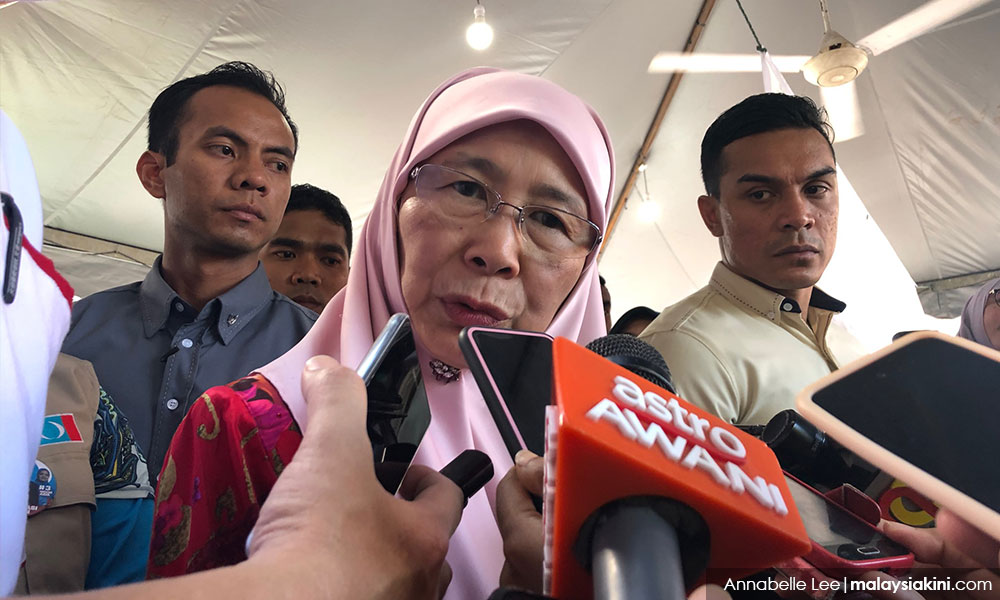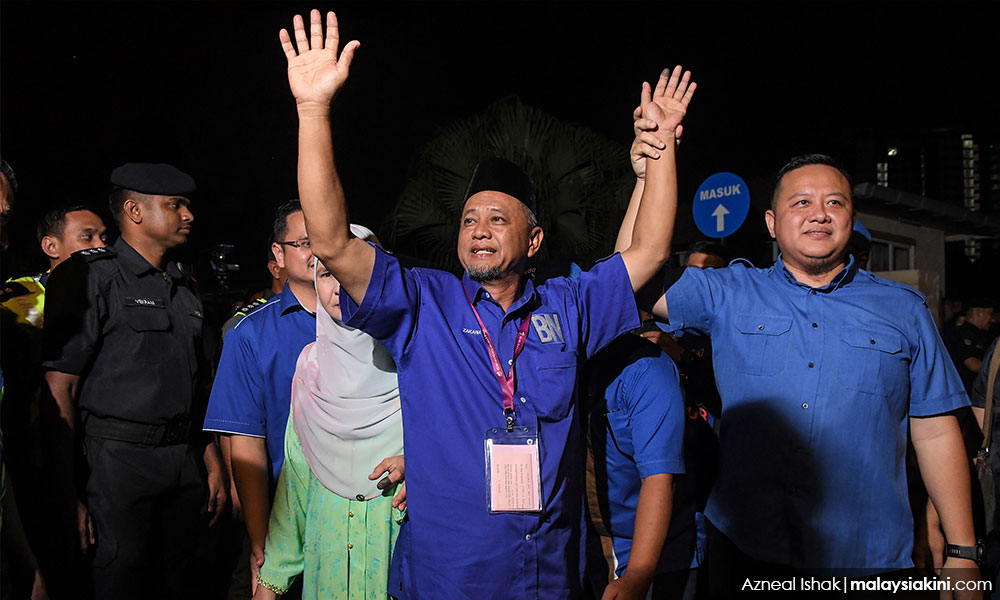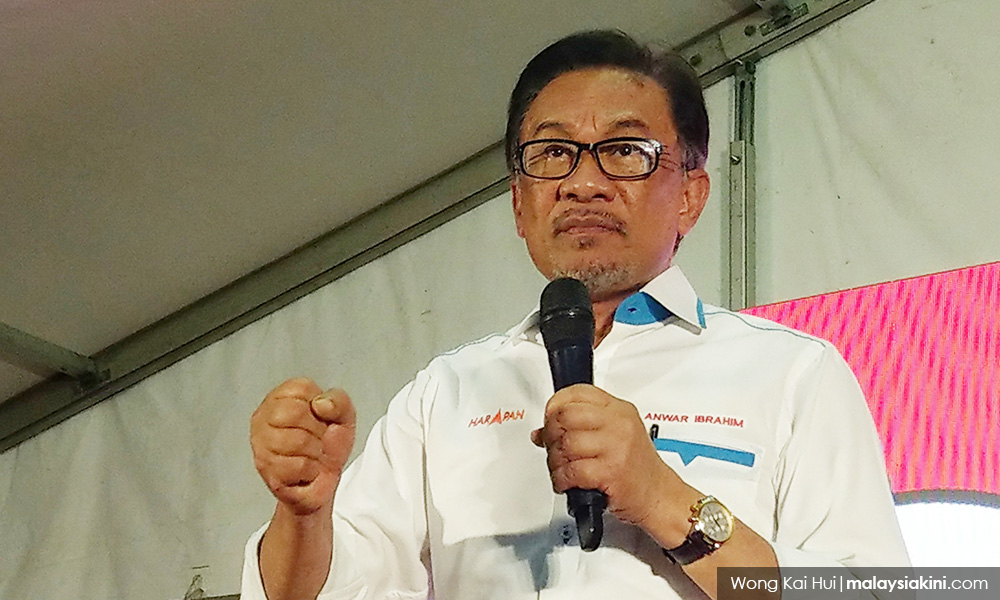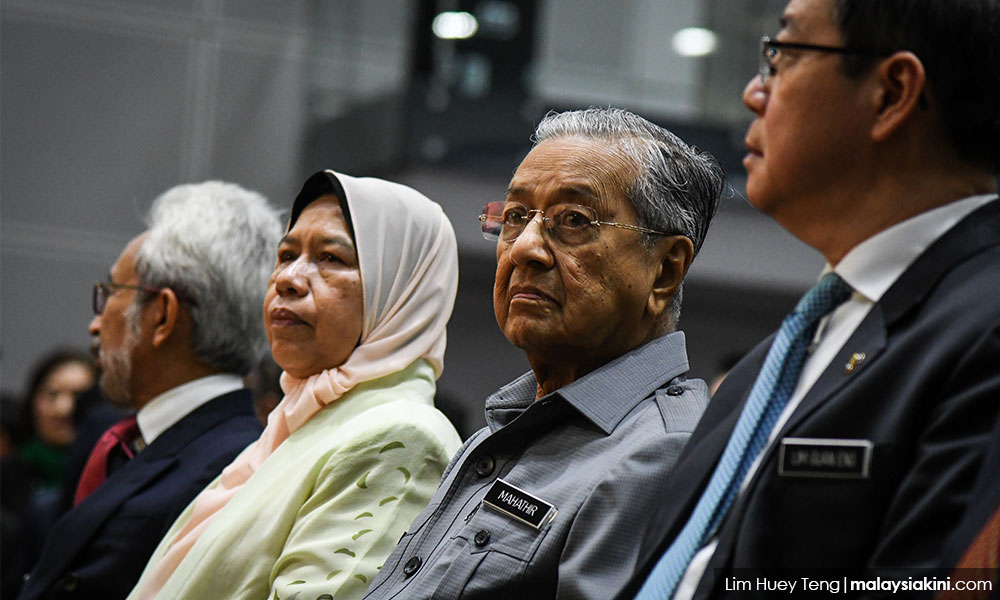April 10, 2019
April 10, 2019
26 March, 27, 2019
ttps://www.eastasiaforum.org/2019/03/20/can-thailands-junta-manage-the-elections-outcome/
For Thailand’s junta, the 2019 election is to be carefully managed so that the government can return to power with enhanced legitimacy, both among its own people and the international community. Yet the National Council for Peace and Order (NCPO) may have miscalculated its ability to control the elections effectively and so enhance its legitimacy.

The constitution and electoral laws were carefully designed to disadvantage the two large parties, Pheu Thai and the Democrats. Meanwhile, the junta leaders are allowed to appoint the 250 senators who will join with elected MPs to choose the prime minister. The constitution also allowed junta leader Prayut Chan-o-cha to be nominated for prime minister without membership in a party. This gives him greater flexibility in seeking the additional 126 elected MPs whose support is necessary for him to remain in his current position.
While writing a favourable constitution and electoral laws proved possible, managing the campaign process is much more difficult. Yet strong efforts are being made. Elections are under the purview of the Election Commission of Thailand (ECT). PNet, an NGO that independently monitors the election process, recently awarded the ECT an ‘F’ grade for its performance, stating that it ‘has failed to demonstrate it is not under undue political influence’.
So far, the ETC has decided that a government handout to the elderly and the poor just prior to the beginning of campaigning did not violate election laws and that the pro-government Phalang Pracharat Party (PPRP) had not accepted illegal donations at a fundraiser. Most recently, it ruled that the prime minister could actively campaign with the party that nominated him (a step too far even for Prayut himself, who instead has chosen to follow the party on the campaign trail).
In contrast, in the case of the anti-government Thai Raksa Chart party, the ECT recommended dissolution without following its own procedures in a rush to judgement. The Constitutional Court would later follow that recommendation.
In January and February, I interviewed candidates from a range of parties, in all four regions of Thailand. None expressed any faith in the ECT. Candidates of pro-regime parties thought the ECT was ineffective. Candidates of anti-regime parties not only questioned the ECT’s capability, but also feared that it was focused on identifying any small violation of the law that would justify banning opposition candidates and parties.
Opposition parties also have to defend themselves from the National Broadcasting and Telecommunications Commission (NBTC). The NBTC sought to shut down the opposition-oriented Voice TV for 15 days during the election, only to see the decision reversed by the courts. Other threats have come from criminal investigations, with leaders of the Future Forward party charged under the Computer Crime Act.
Ironically, but perhaps not surprisingly, attempts to manage the outcome of the election appear to have created a backlash against the regime. Recent polling done by the Nation newspaper shows the PPRP winning just 62 of 350 constituency seats, with the anti-regime Pheu Thai party winning 136. A recent rally of the PPRP in Korat drew just a few hundred supporters, leaving thousands of empty seats.
Perhaps more interesting are the results of a recent King Prajadhipok Institute poll, which indicate that 96 per cent of eligible voters intend to vote. One would not expect that level of enthusiasm if voters were happy with the government and the status quo.
Political parties also seem to be reacting to anti-government sentiment. The Democrat party, which is likely to win the second most seats after Pheu Thai, recently announced that it would not support the return of Prayut as prime minister. The Democrat Party had previously been deliberately ambiguous regarding its stance. It also set conditions for potential pro- and anti-government coalition partners.
In an interview with Bloomberg, Bhum Jai Thai (BJT) party leader Anuthin Charnvirakul stated that the party will wait for the outcome of the election before finalising its stance, so that it can take into account the voice of the people. BJT has long been considered to be firmly on the government side. Answering this way, even as a campaign tactic, indicates concerns with being seen as too firmly on the side of the junta.
Despite these indications of very limited support for the government, it is expected that the junta will continue to manage the outcome. In the interviews I conducted in January and February, academics and candidates suggested that the junta will expend resources to convince both small parties and individual MPs to join the pro-government side after the election, ensuring support will go well beyond the elected members of the PPRP.
One leading member of a large party noted that the ECT has 60 days to certify the results of the election. They raised concerns that during that period anti-government parties might be dissolved to ensure the junta remains in power.
While Prayut is likely to return to power, it will not be with the clear mandate he seeks. The manipulation of the elections to ensure his return is more likely to result in a decline in legitimacy and support at home, although even a manipulated election may help relieve international pressure to return to democracy. Under such circumstances, concerns about future government stability are likely to remain.
James Ockey is Associate Professor at the School of Language, Social and Political Sciences, University of Canterbury
March 4, 2019
by Sharifah Munirah Alatas
https://www.freemalaysiatoday.com
Pakatan Harapan (PH) lost two by-elections in just one month.
Last month, Barisan Nasional (BN) won its first post-GE14 by-election in Cameron Highlands. On Saturday, in Semenyih, it claimed its second victory.
In Cameron Highlands, the majority was 3,239 votes, and in Semenyih it was 1,914. Voter turnout in the Balakong, Seri Setia and Sungai Kandis by-elections were below the 50% mark. Cameron Highlands and Semenyih commanded higher percentages, 68.7% and 73.24% respectively.
They reveal that Malaysians are seasoned democratically. We are capable of voting one party out, in search of a better alternative. This comes only nine months after a previous “better alternative”.
The burning question now is, how will all the elected individuals in government chart their trajectory towards the fundamental task of “making our lives better”?
Since PH’s loss in Cameron Highlands, harebrained policies and schemes have been dished out to us. We may see more of these disappointments, post-Semenyih.
The latest flying car dream is a glaring disappointment. Entrepreneur Development Minister Redzuan Yusof claimed a week ago that it is a prototype targeted at transport service companies, and is not for sale to the general public.

Why embark on this project now when there are millions of other housing, health, “rice, fish and vegetable” issues facing the public? These are the unsolved problems that are turning the public away from PH.

I have not heard or read of any member of the public who is jumping for joy with the flying car prototype. The minister tried to calm nerves by saying that local technology would be used to attract foreign investment. The voters of Semenyih have proven that there are egalitarian, more democratic ways of attracting foreign investment.
Needless to say, spending about RM1 million on flying technology is a “cheap” way of skirting the problem of our public transport system.
On March 1, Health Minister Dzulkefly Ahmad said his ministry was open to the idea of building a new hospital in Semenyih.
One day after the by-election, Mahathir blamed the UMNO-PAS alliance and the nation’s debt for PH’s loss in Semenyih.
We hope this means that PH will scrap the plan to build the hospital in Semenyih. Building hospitals do not come cheap. Semenyih residents are not interested in a hospital. Instead, re-allocate funds towards widening the roads, easing traffic congestion and upgrading the public transportation system.
These are what the residents want, but nobody is listening to them. I should know, because I am one such resident.
The Unified Examination Certificate (UEC) has still not been recognised. It is a black mark in PH’s report card.
The public is convinced that PH is still committed to the “Malay agenda” when Dr Mahathir Mohamad said the government “needs to consider the feelings of the Malays”.
Even Arshad Ayub, Universiti Teknologi Mara’s (UiTM) founding father, believes that Malaysia has reached a point where UiTM is ready to accept non-Malay students, albeit at the post-graduate level.
The public is fed up with the lack of meritocracy exercised by our institutions of higher education. It is not alien to me. Our culture of meritocracy is stunted, and it is driving PH supporters away.
The abolition of the goods and services tax (GST) has increased the price of goods. Tolls have not been reduced, nationally. The recent move to replace the toll system at four highways with congestion charges does not impress the public.
The Finance Ministry’s “zero-based budgeting approach” is goal-specific, rather than based on the BN-era budget calculation. The share for development has decreased to 17.4% of total expenditure. Instead, the share of the operating budget increased by 10.4%, reflecting sizeable emoluments attributed to the bloated civil service.
Despite Mahathir’s bemoaning the huge size of our civil service (almost 1.6 million), there are no policies in sight to trim it.
Rural Malaysia has accepted their lot at the bottom of the social hierarchy. They are less interested in former PM Najib Razak’s conviction in the 1MDB scandal. This explains why BN is still very influential in grassroots Malaysia.
The reason, of course, is BN’s (in collusion with PAS’) ability to contextualise development within an ethno-religious framework. PH seems to be following suit, as indicated by the abrupt U-turn on ICERD late last year.
But BN has more magnetic power, backed by decades of “familiarity” among the rural masses. PH will not have the staying power if they do not pay attention to economic and education reforms that would otherwise benefit the grassroots.
Reform-minded, urban Malays will be the first to re-orientate their loyalties after feeling cheated and disillusioned. Will the non-Malays then resort to forming a third coalition out of desperation?
The Malays, Islam and the “war for Malay support” have resurfaced as the stalwart of post-GE14 politics. As we race towards GE15, another scenario awaits us. A growing prejudice based on religio-ethics has started to boil.
The door to ijtihad seems to be closing rapidly. TV1 airs daily religious programmes dedicated to textual interpretations of the Quran. Contents are restricted to deconstructing Arabic words and sentences. These programmes are not focused on the cognitive processes needed to adapt the Quranic message to our pluralistic, socio-cultural milieu.
Mahathir has often lamented how our national schools have become religious schools. Since PH came to power, though, I have not noticed any changes to our national television stations.
Besides our schools and universities, the television functions as an education tool as well. It is time our ministries affect policy reforms that reach the grassroots level. It is not good enough to “look into the issue” or delay by forming one intra-ministerial committee after another.
BN continues to capture the rural Malay psyche by latching onto a skewed interpretation of Islam through the print media and television. A sizeable group of progressive Muslims in Malaysia are aware of these tricks but seem to accept the lesser of two evils.
In the midst of PH’s mounting setbacks, (in fulfilling their election promises), reform-minded Malays are finding comfort in BN and PAS.
The by-election in Semenyih, home to 46.3% Malays and 33.7% Chinese, is proof of this.
Muhammad Aiman Zainali’s candidacy proved a disaster because he was simply the wrong choice. He did not constructively address an iota of the issues facing Semenyih residents.
Neither did he try to win over the community by recommending solutions to the problems residents face. He did not even play the race and religion card, the way BN did.
Twenty million Malaysians realise that it was ridiculous for Aiman to contest. Merely being of “likeable personality” or the son-in-law of the deceased is not a game-changer. Lest we forget, nepotism was one of the main reasons BN fell from power.
We can expect the next few years leading up to GE15 to be checkered by communal politics. Prejudice and growing extremism are on the horizon. PH needs to work in unison, to implement reform-oriented policies amidst the racial and religious divide we are experiencing.
Most importantly, PH has to make inroads to the grassroots. It takes courage, effort and political will.
Our leaders have to be humble, work hard and listen to the people. Our democratic system implores them to do so. If they do not, greed, arrogance and megalomania will be their first class ticket out of Putrajaya.
The views expressed are those of the author and do not necessarily reflect those of FMT.
March3, 2019
https://www.malaysiakini.com/news/466358

The result of the Semenyih by-election is a message for Pakatan Harapan to study issues deeply, Deputy Prime Minister Dr Wan Azizah Wan Ismail said today.
Wan Azizah, the Harapan president, said the coalition has to know what is needed to win in a by-election or a general election.
“We have a democratic system, we have a choice and we want the people to know that we are doing our best for them,” she told reporters after the 2019 Chinese New Year open house for Port Dickson.
She said this when commenting on the result of yesterday’s by-election, which saw BN candidate Zakaria Hanafi winning the four-cornered contest a majority of 1,914 votes.
Zakaria defeated Harapan candidate Muhammad Aiman Zainali, who polled 17,866 votes, PSM’ Nik Aziz Afiq Abdul (847 votes) and independent Kuan Chee Heng (725 votes).
‘Sentiments reflected’
Meanwhile, PKR Ppresident Anwar Ibrahim said the results of the Semenyih polls reflected the feelings of the people, especially those of the Malay community.

“We must take (the sentiments) into account, but we must continue with our tasks.
“I am confident that with a little time, the people will understand why we take necessary measures in implementing our programmes.
“We must also remember that the nature of the constituents is important for us to study.”
Anwar said that in the democratic process, the government respected the decision made by the people.
“The Selangor government is still strong under Menteri Besar Amirudin Shari and the federal government under Prime Minister Dr Mahathir Mohamad.
“It is my opinion that Malaysia must continue with the spirit of the (Federal) Constitution, which promises to preserve the position of Islam and the Malays, but the government must also be firm in preserving racial harmony.
“Harapan must represent the sentiments and needs and aspirations of all races,” he said.

Asked whether Mahathir’s aura had disappeared following the two straight by-election defeats, Anwar said it was inappropriate to make such an interpretation.
“Because Cameron Highlands is not a seat held by Harapan, we accept it.
“The Semenyih by-election gave a picture that there are several problems that we have yet to resolve,” he stressed.
Earlier the Port Dickson MP said the government under the leadership of Mahathir was endeavouring to bring changes to the people, but it was not possible to see the outcome within a period of several months.
“People ask me what is the biggest success achieved by Harapan under Mahathir.
“I say that the biggest success was that we managed to save the country from a government that was committing major robberies of the national income – not a minor robbery, not stealing chicken, but stealing national wealth.”
‘People’s right and voice’
Harapan Deputy President Lim Guan Eng, meanwhile, said that the coalition accepts its candidate’s failure to defend the state seat.

Lim described the result as the right and voice of the people in selecting their representative in the area.
“I accept the result from the people. This is the people’s right and voice.
“The expectation is that BN will fulfil their promises and statements made in the by-election.
“For Harapan, we will continue to unite the people,” he told reporters after an event in George Town.
– Bernama
February 18, 2019
Last week, Thailand’s upcoming elections took a bizarre turn when Princess Ubolratana Rajakanya (pic above), Thai King Maha Vajiralongkorn’s elder sister, was registered as a prime ministerial candidate by Thai Raksa Chart, a Thai political party affiliated with the exiled billionaire and former prime minister Thaksin Shinawatra. The King swiftly condemned the move as unconstitutional and an inappropriate interference of the monarchy in Thai political affairs. But both interventions on the way to the 24 March elections leave many questions about the country’s transition from military rule along the road back towards democracy.
By most reckoning, Thailand is the second most important member of ASEAN. Thailand is Southeast Asia’s second largest economy although its growth rate, which had been running at 6.5 per cent before martial law was imposed, is now languishing at under 1 per cent. Its people are more prosperous than the population-large Indonesia and, although stalled in the middle income trap, its economy includes the most advanced industrial production networks in Southeast Asia and is highly integrated into the East Asian economy.
Thailand’s economy is flexible and globally connected. Its production networks enhance regional productivity and efficiency. ASEAN efforts at regionalising its market and production depend on re-igniting Thailand’s success — positioned as it was at the leading edge of Southeast Asian modern industrial development. Its political troubles of the past half-decade have posed the usual issues for international investor confidence for Thailand itself, but they’ve also raised serious issues about its ability and commitment to deal with ASEAN’s challenges in an uncertain world economy and the new shape of geopolitics in the region.
This year, Thailand chairs the ASEAN group and in that position it will play a crucial role in trying to frame the region’s response to perhaps the most testing international and economic environment that the regional organisation has confronted in the more than 50 years since it was founded. Thailand’s return to democracy after the coup five years ago is in part preparation for the leadership role for which it now has responsibility.
At its roots, the fracture of Thai political stability five years ago was a consequence of the nation’s failure to build a stable consensus about how to distribute political and economic power across society, ordered around the monarchy, the military and bureaucratic elite, and the people, gradually enfranchised through elections after the student uprisings in 1973. The restoration of a measure of democracy this time round depends on the commitment of the most powerful interests in the nation, including the palace and the army, to respect electoral mandates. If things go badly wrong again, Thailand — one of the most successful societies in Asia and a society that is comfortable with its positive international and regional standing — will not only find it more difficult to re-establish its place back on the perch, it will weaken ASEAN’s new determination to assert its centrality in regional affairs.
One view is that Thailand can manage its regional responsibilities, as chair of ASEAN, and continuing political turmoil at the same time. There will be no repeat of the 2009 episode when protesters forced the cancellation of that year’s ASEAN Summit and badly dented ASEAN’s international standing. That’s probably a sanguine view of Thailand and ASEAN’s situation today. The region and the organisation are under intense pressure and searing critical examination. If Thailand’s missteps along the road towards democracy spill over into uncertainties about the process of setting a new strategic direction for ASEAN, the costs will be non-trivial.
The monarchy appears to have shown decisiveness and appealed to worthy principle in dealing with the fiasco created by Princess Ubolratana’s unusual entry into Thai politics via Thaksin’s clumsy tactic. Yet our first lead piece this week by Patrick Jory speculates that the King may have had knowledge of his sister’s and Thaksin’s move. Were that so, it would forebode continuing febrility in the relationship between the monarchy and the bureaucratic elite.
On coronation, it’s believed, the King could in fact extend political amnesties to cement the progress of constitutional monarchy under his reign. If that extended to Thaksin, however, there would certainly be further trouble down the track. Meanwhile, the role of the military and Prime Minister Prayut Chan-o-cha will be decisive. He was nominated as a prime ministerial candidate by the Phalang Pracharat Party at the same time as Princess Ubolratana’s spectacular flameout. Although this was not unexpected, it raises difficult questions. Prayut’s nomination for prime minister by Phalang Pracharat can be argued to compromise the military’s interest in respecting the electoral mandate. The appointment of senators (who have a vote with elected parliamentarians on the choice of prime minister) is by the National Council for Peace and Order of which Prayut’s chair. Senate votes could carry the day in the likely event that there is no decisive majority outcome from the popular electoral vote.
In our second lead piece this week, Greg Raymond canvasses these and other political problems in Thailand today.
‘Much is still to play out,’ says Raymond, ‘but there are reasons to think that both sides of politics may see it in their best interests to act with restraint. One of the beneficiaries of what has occurred is without doubt Prime Minister General Prayut Chan-o-cha’. Prayut looks like he has a strong chance of being elected prime minister. He needs to secure 126 seats from a coalition of his own and other smaller parties, and command virtually all of the 250-member Senate (as is expected given senators are appointed by the junta) to get a winnable 376 seats to ensure his installation as prime minister.
But political emotions are inevitably running high and Thaksin’s might not be the only misstep. Were the military to cancel the election in the light of what has happened, or take excessively punitive measures against the Thai Raksa Chart party, it could trigger unrest and make a volatile situation more so. The Pheu Thai Party, the main Thaksin-affiliated party, is still in the contest if it can preserve its cool and insulate itself from whatever happens to the Thai Raksa Chart party, including possible dissolution.
Prinya Thaewanarumitkul, Vice Rector of Thammasat University, has urged Prime Minister Prayut to stand back and withdraw from the Prime ministerial contest in order to avoid a conflict of interest for the National Council for Peace and Order in its role in the appointment of senators. That would be an act of great statesmanship, but an unlikely turn of events. There is quite a way to go before Thailand restores its rank among the democracies and many uncertainties along the path over the next several months.
The EAF Editorial Board is located in the Crawford School of Public Policy, College of Asia and the Pacific, The Australian National University.
January 25, 2019
//www.freemalaysiatoday.com/category/opinion/2019/01/25/najib-still-the-man/

Najib Razak is certainly a man on a mission (decommission). He seems intent on trying to revive his standing by convincing his base that he was unfairly demonised by Pakatan Harapan (PH) and unjustly tarnished by the 1MDB scandal. His efforts appear to be showing some results; he was mobbed by villagers in Sg. Koyan and elsewhere in Cameron Highlands recently when he campaigned there on behalf of Barisan Nasional (BN).
And it was not just Cameron Highlands. In the last few months, despite multiple corruption charges hanging over his balding head, he has been more visible and more vocal than many PH leaders, dishing out advice, skilfully exploiting local grievances and hammering away at PH’s perceived failures. He even managed to steal the show at the Thaipusam celebrations at Batu Caves.
He’s also proving adept at taking credit for everything good and blaming PH for everything bad, never mind that PH is struggling to clean up the colossal mess he himself left behind. But memories are short and the more gullible are already pining for “the good old days” under Najib.
In Cameron Highlands, he even had the audacity to tell voters, “Don’t allow them [PH] to cheat us… don’t trust them… how long do we want them to continue cheating us?” And this from the man who stands accused of cheating the people of Malaysia of billions of ringgits!

Down but not out
Clearly, Najib may be down but he is not yet.
If he succeeds in convincing the Malay-Muslim electorate, in particular, that he is but a victim of a political vendetta or worse still, a non-Malay conspiracy (something that unfortunately all too many will be quick to believe), his influence will only grow.
After all, nothing can be ruled out in politics; if Dr Mahathir Mohamad and Anwar Ibrahim can rise again from the ashes, so can he.
Unlike other UMNO leaders who remain largely clueless, Najib understands that the UMNO brand and its formula of racial and religious exclusiveness still retains its appeal among many Malay-Muslim voters and can be weaponised against PH. He knows too that his only chance of avoiding serious jail time lies in UMNO regaining power.
The feudal mindset of many voters also works in Najib’s favour. They are often willing to overlook serious, even criminal shortcomings in a leader so long as he is perceived to have defended Malay rights. They remain eternally grateful to a leader for building a mosque here or a road there, or for giving them a pittance in handouts while he helps himself to millions from the public purse.
Court of public opinion
PH has focused on bringing Najib to justice via the courts for his alleged criminal misconduct. To that end, the government has painstakingly built what looks to be a strong legal case against him with multiple charges now pending in court.
Of course, it is absolutely necessary to bring Najib to justice for whatever crimes he may have committed. However, the legal process is often a slow and cumbersome one and the outcome is by no means a foregone conclusion.
Nevertheless, the case against Najib is more than a legal one; it is a political one and must be fought and won in the court of public opinion as well.
PH must rise to the challenge
If PH ever hopes to win the support of Malay-Muslims, it must persuade them that they will be better off in every respect under a clean and responsible government led by PH than a corrupt one led by UMNO.
The full extent of the corruption and the abuse of power of the Najib administration and how it has hurt the Malays themselves must be emphasised. Just look at the substandard housing of FELDA settlers in the Cameron Highlands constituency and the hardship they still face; if corruption hadn’t robbed the nation of billions, their lives would undoubtedly be far different today.
Of necessity, this is a political campaign that can only be fought and won by PH’s Malay leadership. They must be more proactive in carrying the fight to the Malay heartland where support for UMNO and Najib remain strong. And not just during by-elections. Until PH has firmly established itself in the Malay heartland, it needs to be in continuous election mode.
PH’s Malay leadership must also take on Najib more directly. Najib is, after all, challenging their legitimacy to represent the Malays and they must confront him. It wouldn’t have escaped notice that it is Messrs Lim Kit Siang and Lim Guan Eng who are constantly attacking or refuting Najib while PH’s Malay leadership remains largely silent, even deferential at times. This has allowed Najib to argue that only DAP seems “obsessed” with attacking him, that this is somehow racially motivated.
The battle against Najib (and UMNO) for the allegiance of Malay-Muslim voters is PH’s biggest and most important challenge; if they don’t rise to it sooner than later, they might well be forfeiting the future of Malaysia Baru.
The views expressed are those of the author and do not necessarily reflect those of FMT.